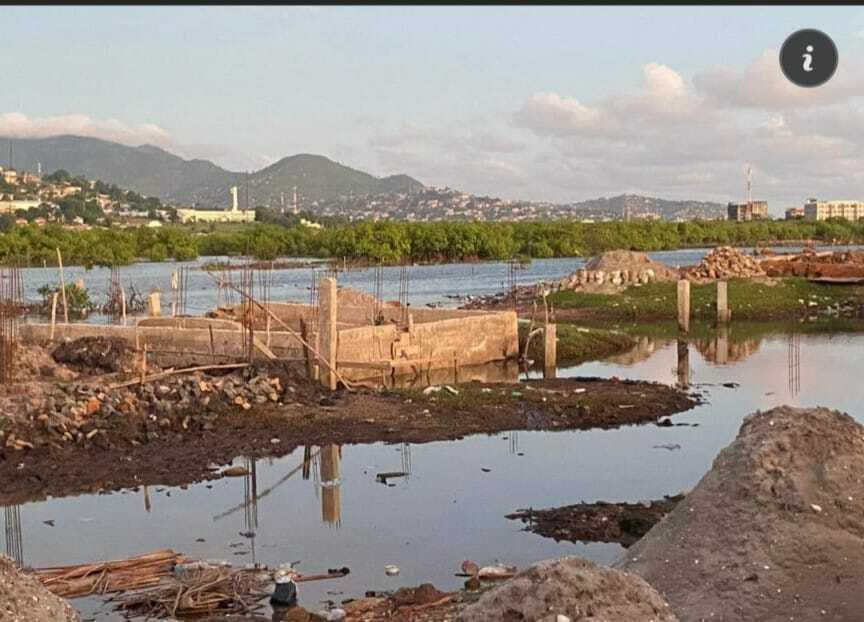We are nothing without our environment; and we are a nation that ought to have learnt the hard lessons of being careless about environmental protection. At a time when the impact of environmental degradation and climate change cannot be clearer, it is important that the State shows the leadership and conviction that is required to save our environment and the future of our children. As the late Desmond Tutu put it, “twenty-five years ago, people could be excused for not knowing much, or doing much, about climate change. And today, “we have no excuse”.
There is no dearth of evidence to illustrate the scale of the environmental destruction that is going on in the country. From Freetown to the regions, people and organisations have been sounding the alarm. Just this week, journalist Amadu Lamrana Bah posted photos of what seems like permanent structures being constructed on Lumley Beach in Freetown. A few weeks ago, the Mayor of Freetown, Yvonne Aki-Sawyer posted similar photos of the ongoing encroachment and destruction of Aberdeen Creek. And Dr. Gajikoh Mohamed Sellu had in the past taken his time to help us see rising sea levels as the ocean continues to push its banks along the Western Area, amidst rampant sand mining and other human activities. Lawyer and environmental justice campaigner, Sonkita Content has also written an article highlighting the urgent need to stop the timber trade, warning that the nation will lose all its forest cover in a few years. Do we need to mention the annual floods, water scarcity and rising temperatures?
Just as there is no shortage of evidence, there is no lack of policies and institutions to protect the environment. There is a whole ministry of environment and an agency to support it. The problem is the State’s half-hearted approach and inaction to halt the dangerous degradation of the environment that has had serious consequences for people—their lives, livelihood and property.

You would often hear arguments that tend to blame ordinary people who encroach and build homes in prohibited or dangerous areas. You would also see fingers pointing at poor people who cut down trees to make ends meet. Seldom would the fingers be wagged at rich and powerful people and companies who contribute to destroying the environment either through their actions or inactions. And as the State prepares to turn one of the country’s tourist sites and habitat for endangered species into a fish habour, they still would not accept responsibility for the coming tragedy.
When homes are in short supply, prices are high and the market is completely unstructured and unregulated, everyone tries to put a roof over their heads to quickly escape predatory and exploitative house owners. And as a result, poor people retreat to the hills and creeks and are left to perish when the floods come. It is sad that people either perish by floods or perish in the hands of greedy house owners. And the government’s response? Indifference and complicity until disaster strikes.
There is actually very little to talk about on matters of the environment and climate change. The evidence of the destruction is clear, and people and organisations are making the case every day for the government to take concrete steps to halt the ongoing destruction and avert the pending catastrophe. There is a reason why people elect leaders and entrust them with State institutions. That reason is to lead and lead into action. Maybe we should stop talking about environmental protection as an isolated subject and look at it more as a survival issue. To borrow from the 13th Century Persian poet, Rumi, we must muster “the will to live” and be deliberate about it.
What ever you are up to in the days ahead, please take care of yourself and have a nice weekend
About The Author
- Engage Salonehttps://www.engagesalone.org/author/eng21_admin/
- Engage Salonehttps://www.engagesalone.org/author/eng21_admin/
- Engage Salonehttps://www.engagesalone.org/author/eng21_admin/
- Engage Salonehttps://www.engagesalone.org/author/eng21_admin/


